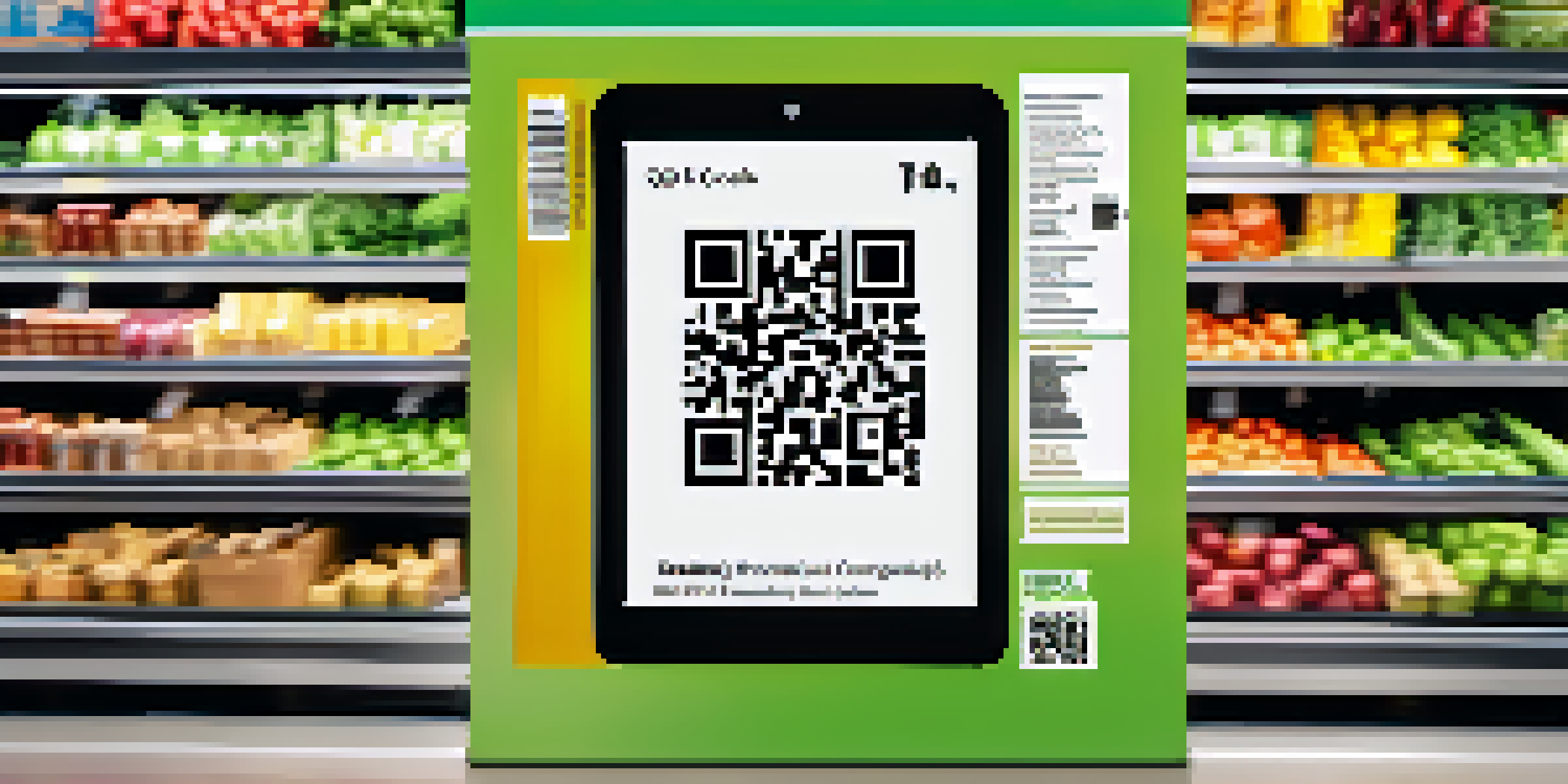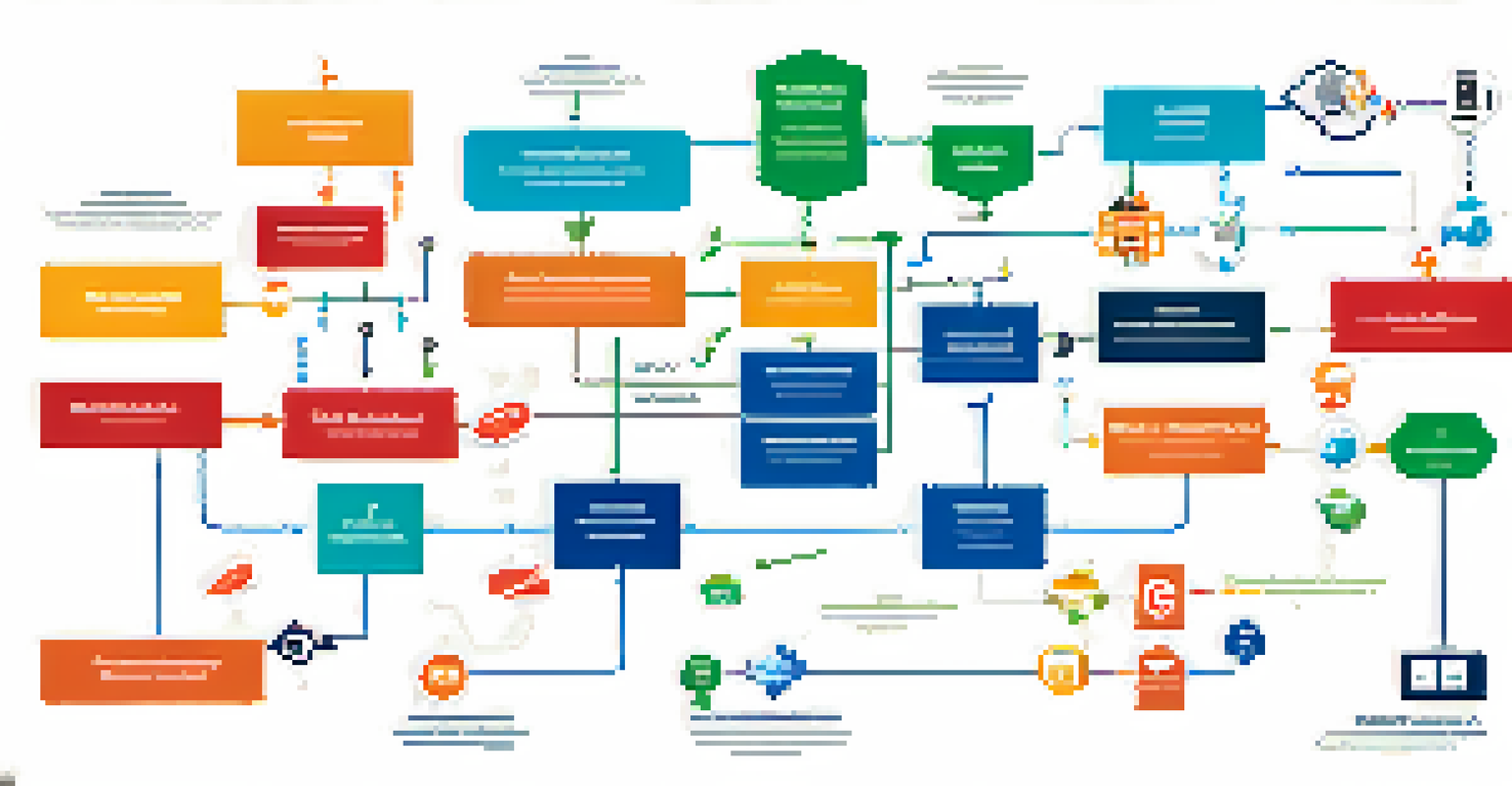How Decentralized Applications Are Transforming Supply Chains

Understanding Decentralized Applications in Supply Chains
Decentralized applications, or dApps, operate on a blockchain, enabling peer-to-peer interactions without intermediaries. In supply chains, this means that each participant can access the same information in real-time, promoting transparency. For example, a farmer can directly connect with retailers without needing a middleman, ensuring that everyone involved is on the same page.
In the age of information, transparency is the new currency.
This transparency not only fosters trust but also enhances accountability throughout the supply chain. Each transaction is recorded on the blockchain, making it nearly impossible to alter or falsify information. Imagine a scenario where consumers can trace the origin of their food, knowing exactly where it came from and how it was handled.
As more businesses recognize the benefits of dApps, we see a shift towards more efficient supply chain processes. This digital transformation is not just a trend; it’s a fundamental change in how goods are tracked and verified, ultimately leading to a more robust system.
Enhanced Transparency with Blockchain Technology
One of the standout features of decentralized applications is their ability to ensure transparency. Every transaction made within a dApp is visible on the blockchain, providing a clear record that anyone can verify. This level of openness is a game changer for industries where trust is paramount, such as food and pharmaceuticals.

For instance, if a shipment of medication is delayed, stakeholders can easily trace the issue back to its source. This immediate access to data can help prevent counterfeit products from entering the supply chain, safeguarding consumer health and safety. Think about it: when you know exactly where and how a product has moved, you can make informed decisions.
Transparency Boosts Supply Chain Trust
Decentralized applications promote transparency by allowing all participants to access the same real-time information, fostering trust and accountability.
Moreover, this transparency can lead to better compliance with regulations. Companies can easily demonstrate their adherence to safety standards, as all actions are logged and traceable, creating a culture of accountability that benefits everyone involved.
Increased Efficiency Through Smart Contracts
Smart contracts are self-executing contracts with the terms of the agreement directly written into code. In the context of supply chains, they automate processes like payments and order fulfillment when specific conditions are met. This reduces the need for manual intervention, speeding up operations significantly.
Technological advancements will continue to redefine the way we do business, making processes more efficient and reliable.
For example, when a shipment arrives at a warehouse, a smart contract can automatically release payment to the supplier, provided the delivery matches the agreed conditions. This not only streamlines operations but also minimizes human error, which can lead to costly delays.
As businesses increasingly adopt smart contracts, we can expect to see a dramatic reduction in operational costs and increased reliability in transactions. This newfound efficiency allows companies to focus on innovation rather than logistics, driving growth and improving customer satisfaction.
Traceability: A Key Benefit of Decentralized Systems
Traceability is one of the most compelling advantages of using decentralized applications in supply chains. With every transaction recorded on the blockchain, stakeholders can track the journey of a product from origin to consumer. This capability is invaluable in industries like agriculture, where knowing the source can influence purchasing decisions.
Imagine being able to scan a QR code on a food product and instantly see its entire history. This includes where it was grown, how it was transported, and any quality checks it underwent. Such information empowers consumers and builds trust in brands, as they can make more informed choices.
Smart Contracts Enhance Efficiency
Smart contracts automate processes in supply chains, reducing manual intervention and streamlining operations to lower costs and increase reliability.
Furthermore, traceability can play a crucial role in crisis management. In the event of a product recall, companies can quickly identify affected batches and remove them from shelves, protecting public health and mitigating financial losses.
Cost Reduction through Decentralized Applications
Implementing decentralized applications can lead to significant cost savings across supply chains. By eliminating intermediaries, companies can reduce transaction fees that often eat into profit margins. This is particularly beneficial for small and medium-sized enterprises, which may struggle with high operational costs.
Additionally, the automation provided by smart contracts minimizes the need for manual oversight and reduces the risk of errors. When processes are streamlined and efficient, businesses can redirect resources towards growth and innovation, rather than wasting time and money on administrative tasks.
Ultimately, the financial benefits of adopting dApps can enhance a company's competitive edge in the market. Lower costs can mean better pricing for consumers, which in turn can drive sales and increase market share.
Improving Sustainability with Decentralized Solutions
Sustainability is becoming a key focus for businesses worldwide, and decentralized applications can help achieve these goals. By providing detailed tracking of products, companies can ensure that sustainable practices are followed at every stage of the supply chain. For instance, a fashion brand can verify that its materials are sourced ethically and sustainably.
Moreover, decentralized systems can facilitate collaboration among different stakeholders, making it easier to share best practices and innovations. When companies work together transparently, they can collectively reduce waste and promote environmentally friendly practices.
Traceability Empowers Consumers
Blockchain technology provides detailed traceability of products, enabling consumers to make informed choices and enhancing brand trust.
As consumers increasingly demand sustainable options, companies that leverage dApps to prove their commitment to sustainability can differentiate themselves in a crowded marketplace. This not only benefits the planet but also attracts a loyal customer base that values ethical practices.
Real-World Applications of Decentralized Applications
Many companies are already harnessing the power of decentralized applications to transform their supply chains. For instance, Walmart has implemented a blockchain-based system to track food products, allowing them to trace the origin of produce in seconds. This has drastically reduced the time taken to identify sources of contamination during food scares.
Similarly, De Beers uses blockchain technology to ensure that its diamonds are conflict-free. By tracking the journey of each diamond, they can guarantee that it hasn’t been sourced from unethical mines, appealing to conscious consumers who value ethical sourcing.

These examples illustrate that the potential of dApps is not just theoretical; it’s already making waves in the real world. As more companies adopt these technologies, we can expect to see an industry-wide transformation that enhances efficiency, transparency, and trust.